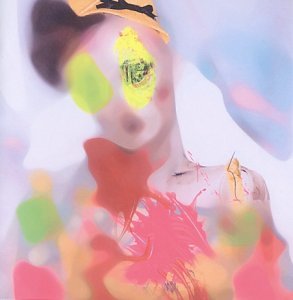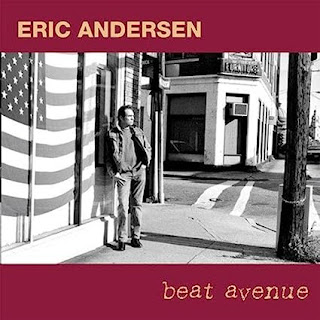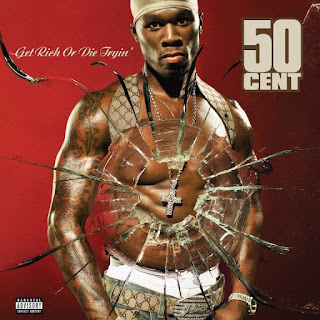V2.47
Best known for her association with Mick Jagger and the Rolling Stones and for a string of lightweight pop hits during the ‘60s, Marianne Faithful has nevertheless forged one of the most enduring and unique legacies in music history. Although drugs derailed her career for much of the ‘70s, Faithful’s 1979 comeback album, Broken English, signaled the rebirth of her creative efforts and led to successful collaborations with producers such as Hal Willner and Daniel Lanois. Kissin Time (Virgin Records) is the latest chapter in Faithful’s storied life, a contemporary pairing of her incredible lyrical vision with the musical talents of folks like Beck, Billy Corgan of Smashing Pumpkins, and Dave Stewart of Eurythmics.
Faithful’s voice is rough-hewn and raw, easily an octave lower than heard on the lofty pop confections she recorded in the ‘60s. As gritty as Faithful’s voice has become, it is also a magnificent instrument, beautifully flawed and perfectly appropriate for her lyrical flights of fancy. There are several moments of pure enchantment to be found on Kissin Time, “Song For Nico,” for instance, offering a heartfelt tribute to a fellow chanteuse, revisiting memories of a time long past. Corgan’s production of “I’m On Fire” is priceless, subtle with shimmering instrumentation almost burying Faithful’s tortured vocals, her lyrics portraying an immense longing for love.
Kissin Time closes with a joyful reading of the Goffin/King gem “I’m Into Something Good.” Producer Corgan pushes Faithful into delivering the sort of pop tune she might have sung thirty years ago and Faithful responds by filling her performance with youth and vigor undaunted by age albeit informed by hard won experience. Beautiful and profane, intelligent and brutally honest, Marianne Faithful has taken the measure of her life and created in Kissin Time a complex, timeless work for the ages.
Virtually unknown outside of folk circles, Eric Andersen’s contributions to the genre have been overshadowed by contemporaries such as Phil Ochs and Bob Dylan. A fixture on the early-60s folk circuit, Andersen began his recording career with 1965’s Today Is the Highway (now sadly out-of-print). Sometime during the early ‘70s, Anderson’s pure folk sound expanded to include elements of Texas-styled country (think Townes Van Zandt) and folk-rock (Dylan and The Band). He has recorded sporadically throughout the past thirty years, taking up residence in Norway and writing songs when the muse strikes. For listeners unfamiliar with Andersen’s past, Beat Avenue (Appleseed Recordings) will sound like a revelation when marked against the current musical landscape.
Andersen assembled a top-notch band to record Beat Avenue, including guitarist Eric Bazilian (the Hooters) and bassist Mark Egan (Pat Metheny Band) as well as guests like singers Lucy Kaplansky and Phoebe Snow, and the Band’s multi-instrumental genius, Garth Hudson. The songs demand a lot of the players and they respond, filling Andersen’s lyrical poetry with powerful and passionate instrumentation. The apocalyptic “Ain’t No Time To Bleed,” a duet with Snow, is a hard-rocking, blues-drenched rumination on the fleeting nature of life. The bittersweet memory of love lost fuels “Salt On Your Skin,” Andersen’s mournful vocals underlined by fluid, whimsical instrumentation. The rollicking “Stupid Love” is wonderfully reckless, Andersen’s rambling vocals matched by Hudson’s piano flourishes and a funky, New Orleans flavor.
A second disc includes the twenty-six minute title track, a Beat-influenced tale of 24 hours in San Francisco on the day of the Kennedy assassination with stark instrumentation and a jazzy vibe. “Blue Rockin’ Chair” is a blues-tinged rocker, equal parts Delta soul and swamp rock gumbo, an ominous musical landscape where Andersen feels the black cat moan. Much of Beat Avenue is preoccupied with death and decay, an obsession tempered by a true romantic’s eternal hope. The 60-year-old Andersen is a classic folk lyricist, painting in both fine lines of brilliant imagery and in broad strokes of skillful storytelling, using a palette that includes emotion, compassion, and insight. Beat Avenue is, indeed, a revelation, Eric Andersen managing to fuse the innocence of folk music with the power of roots rock.
As the hottest rapper to hit the charts since Eminem turned the hip-hop world on its head, 50 Cent (née Curtis Jackson) lives up to the hype. The New York City born and bred artist has come roaring out of the underground and entered the mainstream in a big way, his major label debut, Get Rich Or Die Tryin’ (Shady/Aftermath/Interscope Records), selling almost 900,000 copies in its first four days on the shelf. Signed as part of a joint effort by Eminem and legendary rap producer Dr. Dre, 50 Cent is a real-life “gangsta,” as unforgiving as the street and as dangerous as a wild animal.
Many music fans dismiss rap as mere studio gimmickry and nursery rhyme lyrics, but I defy anybody to listen to Get Rich Or Die Tryin’ and not hear the talent inherent in 50 Cent’s lyricism. The purpose of language is communication, and much like the blues did for Delta-born sharecroppers in the ‘20s and ‘30s, rap music communicates the reality experienced by African-Americans today. The crack-slinging, Glock-toting 50 Cent is as realistic as it comes, his tales of life in the streets and the clubs of the Big Apple every bit as stark as Artaud’s poetry or Bukowski’s drunken prose.
“Many Men (Wish Death)” reminds the listener that the reaper works the street corner while the hypnotic beats and chance conversations of “In Da Club” takes us on a whirlwind trip across an urban dancefloor. “Like My Style” is ghetto fabulous, a bit of sexual braggadocio while “Gotta Make It To Heaven” outlines the random violence that plagues the poor every day. 50 Cent has a keen lyrical eye for detail, larger-than-life charisma and a natural skill at spinning rhymes. Under Eminem’s steady guidance and Dre’s excellent production, Get Rich Or Die Tryin’ is a trip through the looking glass into a parallel America, a brutal reminder that all is not well in the land of the free. (View From The Hill, December 2002)




No comments:
Post a Comment